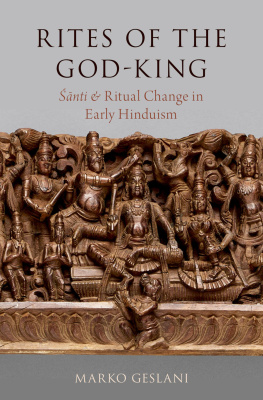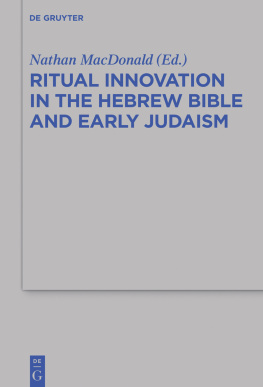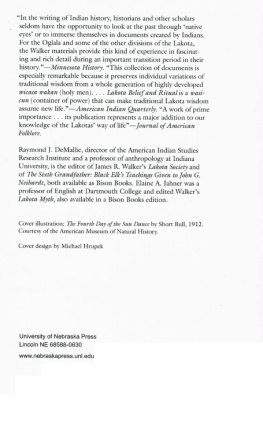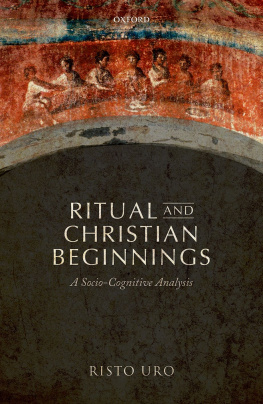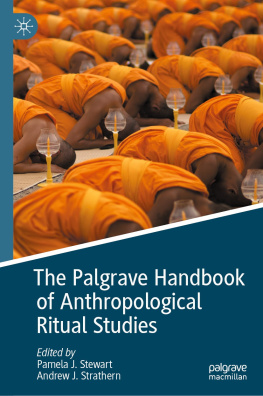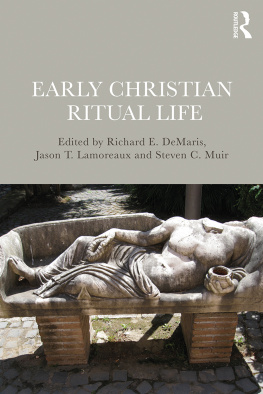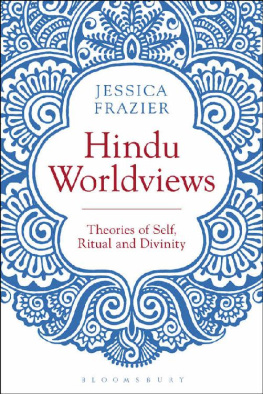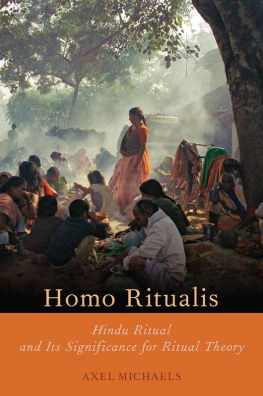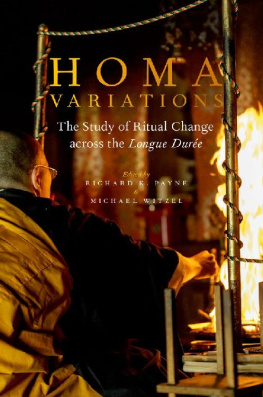Rites of the God-King

OXFORD RITUAL STUDIES
Series Editors
Ronald Grimes, Ritual Studies International
Ute Hsken, University of Oslo
Barry Stephenson, Memorial University
THE PROBLEM OF RITUAL EFFICACY
Edited by William S. Sax, Johannes Quack, and Jan Weinhold
PERFORMING THE REFORMATION
Public Ritual in the City of Luther
Barry Stephenson
RITUAL, MEDIA, AND CONFLICT
Edited by Ronald L. Grimes, Ute Hsken, Udo Simon, and Eric Venbrux
KNOWING BODY, MOVING MIND
Ritualizing and Learning at Two Buddhist Centers
Patricia Q. Campbell
SUBVERSIVE SPIRITUALITIES
How Rituals Enact the World
Frdrique Apffel-Marglin
NEGOTIATING RITES
Edited by Ute Hsken and Frank Neubert
THE DANCING DEAD
Ritual and Religion among the Kapsiki/ Higi of North Cameroon and Northeastern Nigeria
Walter E. A. van Beek
LOOKING FOR MARY MAGDALENE
Alternative Pilgrimage and Ritual Creativity at Catholic Shrines in France
Anna Fedele
THE DYSFUNCTION OF RITUAL IN EARLY CONFUCIANISM
Michael David Kaulana Ing
A DIFFERENT MEDICINE
Postcolonial Healing in the Native American Church
Joseph D. Calabrese
NARRATIVES OF SORROW AND DIGNITY
Japanese Women, Pregnancy Loss, and Modern Rituals of Grieving
Bardwell L. Smith
MAKING THINGS BETTER
A Workbook on Ritual, Cultural Values, and Environmental Behavior
A. David Napier
AYAHUASCA SHAMANISM IN THE AMAZON AND BEYOND
Edited by Beatriz Caiuby Labate and Clancy Cavnar
HOMA VARIATIONS
The Study of Ritual Change across the Longue Dure
Edited by Richard K. Payne and Michael Witzel
HOMO RITUALIS
Hindu Ritual and Its Significance to Ritual Theory
Axel Michaels
RITUAL GONE WRONG
What We Learn from Ritual Disruption
Kathryn T. McClymond
SINGING THE RITE TO BELONG
Ritual, Music, and the New Irish
Helen Phelan
RITES OF THE GOD-KING
nti and Ritual Change in Early Hinduism
Marko Geslani

Oxford University Press is a department of the University of Oxford. It furthers the Universitys objective of excellence in research, scholarship, and education by publishing worldwide. Oxford is a registered trade mark of Oxford University Press in the UK and certain other countries.
Published in the United States of America by Oxford University Press
198 Madison Avenue, New York, NY 10016, United States of America.
Oxford University Press 2018
All rights reserved. No part of this publication may be reproduced, stored in a retrieval system, or transmitted, in any form or by any means, without the prior permission in writing of Oxford University Press, or as expressly permitted by law, by license, or under terms agreed with the appropriate reproduction rights organization. Inquiries concerning reproduction outside the scope of the above should be sent to the Rights Department, Oxford University Press, at the address above.
You must not circulate this work in any other form and you must impose this same condition on any acquirer.
Library of Congress Cataloging-in-Publication Data
Names: Geslani, Marko, 1982 author.
Title: Rites of the God-King : nti and Ritual Change in Early Hinduism / Marko Geslani.
Description: New York : Oxford University Press, 2018. | Series: Oxford ritual studies |
Includes bibliographical references and index.
Identifiers: LCCN 2017030139 (print) | LCCN 2018005574 (ebook) |
ISBN 9780190862893 (updf) | ISBN 9780190862909 (epub) |
ISBN 9780190862916 (online content) | ISBN 9780190862886 (cloth : alk. paper)
Subjects: LCSH: Atonement (Hinduism)History. | HinduismRitualsHistory. |
IndiaKings and rulersReligious aspects.
Classification: LCC BL1226.82.A85 (ebook) | LCC BL1226.82.A85 G48 2018 (print) |
DDC 294.5/38dc23
LC record available at https://lccn.loc.gov/2017030139
For parents and teachers:
Mila, Nestor, Phyllis, and Koichi
Contents
Indologys Untrod Paths
Over and above such gains, is the fact, that the Pariias are in themselves important documents for the history of the development of Indian civilization, because they give an outline of the whole religious life of the later Vedic period from the point of view of the Atharvan priest. To what extent this may be true, may be seen from the following sketch of the contents of the collection, and of their bearing upon some wider problems of Indic Philology.
GEORGE MELVILLE BOLLING, A Contribution to the History of Religion in India
IN 1910, IN an obscure issue of the Catholic University Bulletin, the American classicist and comparative philologist George Melville Bolling published a brief lecture, modestly titled A Contribution to the History of Religion in India. Among other things, it presents a compelling picture of the tenuous relationship between the study of Sanskrit and the study of religion in early twentieth-century America. Once described as an unapproachable Sanskrit scholar, Bolling had studied with the noted American Sanskritist Maurice Bloomfield at Johns Hopkins University, earning his PhD in 1896.
How exactly did Bolling intend that such texts might contribute to the history of Indian religion? Sketching the contents of the text collection, he presents several topics of potential interest to be illuminated by the Appendices: the interpretation of Vedic hymns, the origin of the lunar zodiac, the history of Atharvan priestly institutions, the duties of the royal chaplain, the details of the ritual apparatus, the system of atonements for ritual errors, and the early development of Indian astrology. Seemingly content with this piecemeal account, he declines to generalize further: the wider problems of Indic Philology speak for themselves.
Pivoting abruptly from this review of the myriad delights of the Appendices, Bolling instead describes his plan to publish, in continued partnership with Negelein, two additional volumes of interpretive work on these and other related texts. Then comes the following plea:
A practical difficulty that will confront us, will be the securing of the funds necessary to defray the costs of publication. The work, in spite of its importance, appeals necessarily to a very limited audience, and there is not the slightest possibility of the returns from its sale equaling the cost of publication. After ten years of labor we were compelled to begin the printing of the first volume at our own risk. From the certainty of loss we were
Bollings appeal to the history of religion to garner patronage for his textual project evokes Max Mllers well-known vision of the privileged place of philology in the science of religion, the broad appeal of the latter requiring the specialized work of the former.
What I find lamentable about this pedestrian footnote of academic history is not the decline of American Orientalism that it mightmisleadinglyhave portended but rather the dead end of a train of thought, a path not taken in the history of South Asian religion. For Bolling and Negeleins long engagement with the

